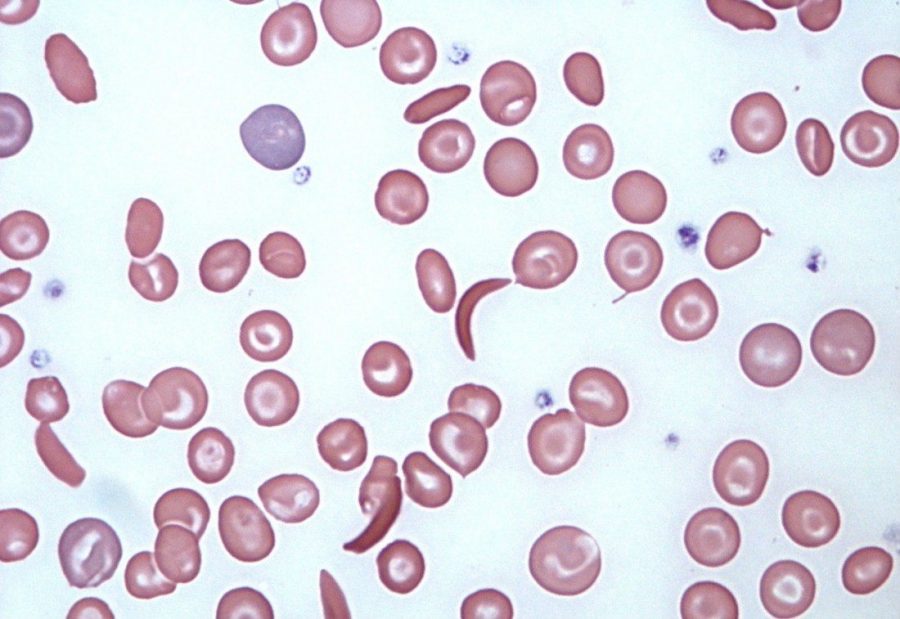Sickle Cell Warriors
“Every time I go to the hospital, I suit up for battle!”
There are ongoing discussions in the United States’ healthcare system regarding an alarming trend of addiction and drug overdose associated with prescription narcotics. This trend has caused President Trump to issue a public health emergency. Recently, the racial implications of this health epidemic were discussed on St. Louis Public Radio during which drug expert, Dr. Andrew Kolodny is quoted saying, “It’s very clear that this epidemic is overwhelmingly white.” Dr. Kolodny’s notion is predicated upon the racial history of the American medical system. This expert’s opinion is that “racial stereotyping of doctors is having a protective effect on non-white communities” when placed in the sociological context of the doctor-physician relationship.
The racialized United States’ healthcare system was used as a tool to spread slavery and preserve the status quo of the era. The ugly truth about this institution lies with ensconced scientific racism, which has become embedded in its structure. White male physicians claimed medical authority while denigrating black and enslaved physicians as ‘root doctors’ and other less powerful healers. Plantation doctors created racist medical stereotypes that still exist today to justify the institution of slavery and the profit received from the exploitation of black workers. Slavery also offered exclusively white physicians access to human bodies for medical education, experiments and practice.
Sickle Cell Anemia, or SCA, is a disease affecting the shape of red blood cells that decreases their capacity to effectively carry oxygen to the body’s tissues. This lack of oxygen causes cell death, leaving the patient with chronic pain. The key characteristics of the disease are the pain, a weak immune system and stunted growth. People with the disease have extreme moments of pain called crises. During these events, circulation is stopped and blood cannot pass through the body. This can happen anywhere in the body.
SCA is a disease that helps to contextualize the racism of the American medical system. Discovered in 1910, SCA was the first known molecular disease. It was also quickly linked to African ancestry. The uncovering of this link began a trend of low funding for Sickle Cell research. In 1972, President Richard Nixon signed the Sickle Cell Anemia Control Act to eliminate the discrimination faced by patients with this illness. SCA is the most common genetic disease in the United States, not only affecting people of the African diaspora but others as well. This disease tends to affect people from geographical regions often associated with Malaria. People of Mediterranean and South Asian descent also have a likelihood of carrying the gene for this disease. Throughout the years, SCA has continued to be a hot button topic because of the increased ER times patients experience and the stigmatization of increasingly scrutinized “faked pain.”
The painful nature of the disease and the racialization of the American medical system allow SCA patients to become a scapegoat for the opioid epidemic. The opioid epidemic is the product of several irresponsible medical practices, but too often SCA patients bear the brunt of mistakes made by healthcare providers. Those that suffer from SCA are often referred to as “sicklers” as they are scoffed at for frequent hospital visits. This, however, is not our name! We are Sickle Cell Warriors because we must suit up for battle with a beast that rages war inside our bodies while simultaneously fighting the ugliest beast in American society: racism.
There is more that can be done for the St. Louis sickle cell community and Saint Louis University can help. The medical needs of adult Sickle Cell patients often go unmet and with an extremely high cost to patients, insurers and hospitals. Saint Louis University owns a vacant property previously home to Diablitos Cantina. One potential use for this building is for it to be converted to an expansion to Student health with an infusion clinic for those that suffer from SCA and similar diseases. This infusion center could make care accessible for students suffering from chronic illness with constant doctor visits that make education less attainable for disabled students. To learn more about the socio-medical history and to donate, check out the Sickle Cell Association of St. Louis’s website, www.sicklecellassociation.org.
Your donation will support the student journalists of Saint Louis University. Your contribution will help us cover our annual website hosting costs.










